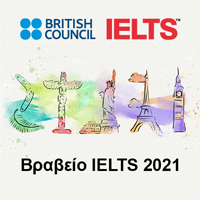Autonomous Agents and Multiagent Systems
Objectives:
The term agent refers to a software entity that acts autonomously to achieve its goals. Multiple agents interacting in the same environment, either cooperatively or in a self-interested manner define a multi-agent system. During the recent years, agents have attracted significant interest and the applications of the relevant technology range from industrial production control systems, energy production and distribution systems to air traffic control. The course aims to:
- provide an in depth introduction to the notions of intelligent agents by presenting the various abstract architectures, their strengths and limitations,
- familiarise students with agent oriented development platforms, especially those that concern belief-desire-intention (BDI) agents.
- analyse issues involved in agent communication and interaction and present the main protocols for cooperation/coordination of multi-agent systems, combining elements of Artificial Intelligence and Game Theory methodologies.
Skills:
At the end of the course the student will be able to:
- understand the basic notions of agent systems and be able to explain the difference between agents and other conventional approaches to complex systems,
- synthesize solutions to complex problems, using intelligent agent notions and be able to choose appropriate interaction protocols for the specific problem,
- implement multi-agent systems, using well established BDI agent development platforms.
- implement intelligent behavior through application of Artificial Intelligence (AI) and Game theory techniques.
Prerequisites:
Knowledge of procedural, object oriented and logic programming. It is good for the undergraduate student to have a grasp of the basic notion of Nash equilibrium, in its various forms (concurrent actions, extended games, repeated games, probabilistic games).
Content:
Introductory Notions. Software Agent Definition. Weak and Strong Notions of Agency. Logic Based Agents. Reactive Agents. Belief-Desire-Intention Agents (BDI). Hybrid agents. Agent Communication Languages. Speech Acts Theory. Communication Protocols/Interaction Protocols. The contract Net Protocol, Negotiation Protocols. Auctions. Languages based on Agent theories. Agent Development in Jason/NetLogo. Principles of game theory. Collective decisions in voting systems. Algorithmic mechanism design. Mechanism design without money. Auctions and Combinatorial auctions. Cooperative game theory. Negotiation in Multi-agent Systems. Routing games. Selfish load balancing. The price of anarchy. Agent based simulations.
Textbooks:
M. Wooldridge, “Εισαγωγή στα πολυπρακτορικά συστήματα”, Κλειδάριθμος, ISBN: 9604611259, ISBN13: 9789604611256, Απρίλιος 2008 (ή)
Michael Wooldridge, "An Introduction to MultiAgent Systems - Second Edition", John Wiley & Sons, ISBN: 978-0470519462, May 2009.
Rafael H. Bordini, Jomi Fred Hübner, Michael Wooldridge, “Programming Multi-agent Systems in AgentSpeak Using Jason”, (Wiley Series in Agent Technology) Wiley-Blackwell ISBN-10: 0470029005 ISBN-13: 978-0470029008, 2007.
Multiagent Systems, Algorithmic, Game-Theoretic, and Logical Foundations Yoav Shoham, Kevin Leyton-Brown, Cambridge University Press, 2009 ISBN-13: 9780521899437.
N. Nisan, N. Roughgarden, E. Tardos and V.V.Vazirani, Algorithmic Game Theory. Cambridge University Press2007.
David Easley and Jon Kleinberg, Networks, Crowds, and Markets: Reasoning About a Highly Connected World, Cambridge University Press, 2010.
Assessment:
During the course, students are expected to complete coursework that consists of two individual programming assignments, contributing 40% to the final mark. Final written examination will contribute 60% to the final mark.










